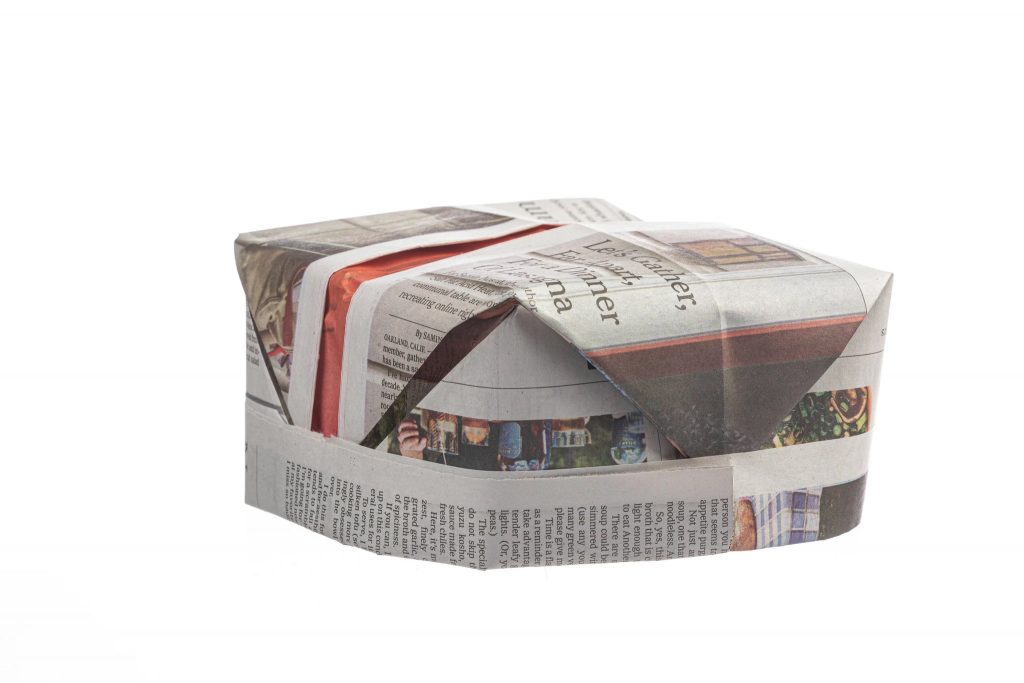[An issue of my newsletter, Leaflet]
Email newsletters like this one are disrupting the magazine business. Well, not like this one, exactly: this one is tiny and free, and so far I still get paid only by traditional media, when I get paid at all. But there are a number of writers, more famous and more prolific than me, who are winning large advances by starting newsletters—and in the process leaving the venerable newspapers, magazines, and websites that fostered them. In some cases, serious money is involved. Houses have been bought, or so I’ve heard. The traditional media are lumbering up a counterattack. Email newsletters written by New York Times staffers used to be free, but a couple of weeks ago, the Times started sending some of the newsletters out with a new preface, announcing that they will soon “be available exclusively to Times subscribers.” There is likely to be much more of this sort of belated attempt to ride the horse that has already bolted out of the not-yet-closed barn door.
I have two questions: What’s going on? And: how did I miss out on profiting from yet another shift in the tectonic plates that lie beneath writing for a living?
I’ll start with question number two, since it may offer clues to answering question number one. I don’t know of any novelists for whom newsletters have lain golden eggs, nor of any book reviewers. Among the writers whose careers I follow, success seems mostly to be visiting pundits and journalists. (Other categories of success, outside the blinkers of my own reading sphere: comedians, and writers who focus on particular lifestyles, identities, and professional communities.) In other words, the new medium seems to be a good substrate for writing that is timely and can be produced in abundance. I find that I personally continue to read a newsletter when it helps me understand what’s going on in my world that day. What I think of as literature tends to be slower and oblique. (Although I see, now that I fact-check myself with a Google search, that Substack, the behemoth of the email newsletter companies and the host of the newsletter you happen to be reading, is now edging into book publishing, too, in serialized form, à la Dickens.) I could see a Calvin Trillin–type poet thriving with a headline-inspired poem once a week, but I can’t imagine a poet who aims for sublimity making the transition. As for reviewing, I have friends who can and do write a review a week, but I don’t know many such athletes, and I don’t know any doing it on Substack yet. (The Substack newsletter Book Post has an editor and a large cast of contributors, like a traditional magazine.)
So maybe the newsletter craze is like Craigslist taking classified ads away from newspapers—another instance of the internet unbundling a traditional publishing form, and picking off a lucrative, low-cost component. One day in therapy, a dozen or so years ago, when I complained that I was spending too long every morning reading the New York Times, my therapist suggested triage: “Why not just read the front page and the op-ed page?” I was unable to take this advice, of course, for any number of reasons, but at the time, I told myself that I was refusing because the op-ed page was the one part of the paper that by intention I didn’t read. It was just opinion, which I could generate myself. What I needed from a newspaper, and couldn’t get elsewhere, was facts. Still, my therapist was on to something. Many readers prefer op-eds, perhaps because they all but invite you to talk back. One way of describing the Substack revolution is that Substack has Craigslisted the op-ed page.
Why didn’t anybody do it sooner? Why didn’t blogs do it, two decades ago? Well, to a great extent, they did. Blogs almost took over the world. Devoted readers followed so many that aggregators like Google Reader were invented, to help people keep up with them. But blogs were never monetized—exceptions like Andrew Sullivan’s Daily Dish proving the rule—and so being a blogger never became more than either a stepping-stone to a “real” career or a distraction to writers who ostensibly did have careers and were already spending too much time reading the newspaper. Then blogs, like every other kind of website, got disrupted by social media, and eventually fell into such disuse that Google, seeing no revenue stream, shut Google Reader down. Is Substack’s innovation just a delivery system so retro that it’s avant-garde—so dumb that it’s clever? Email is an app that almost everyone has. Almost everyone, for professional reasons, has to look at it every day. It’s a consistent, universal, direct channel. Could it really be that Substack has just reinvented a piecemeal, emailable version of Google Reader? (Once upon a time, before the worldwide web, we used to subscribe to Usenet discussion groups by email, and whenever a Substack newsletter shows up in my inbox, I remember that. And I remember how they used to clog up my inbox, unless I figured out a way to sort them. No one else remembers, of course. I am older than you. My first computer was the TRS-80 Model II in my dad’s lab.) There’s even a Substack Reader site that will aggregate all of your Substack subscriptions. It looks exactly like . . . Google Reader.
Why is the gum I like coming back in style? Maybe the innovation here is just that Substack has made it easer for writers to charge their readers. Easier and much less embarrassing. There was always something awkward about a tip jar on a blog. Substack has renovated the social norm around paying writers. The new understanding is that it’s the reader who ought to feel embarrassed if he isn’t paying.
I fully endorse this, but when it’s suggested that readers have always wanted to be able to support their favorite writers and now, thanks to Substack, they can, I think I can sniff the bubblegum vape of ideology. Still, could it be? I like the idea in more than just principle, because it suggests that traditional media institutions have been keeping for themselves far too much of the money they should have been passing along to us writers. This is probably the case, largely because of the difficulty of unionizing a necessarily freelance workforce. More on this another time, perhaps.
“A community is implied by the magazine, newspaper, or website that publishes a critic,” I wrote in a 2012 essay. In the ink-on-paper days, you pretty much had to subscribe to a magazine to read the articles in it with any regularity. You had to belong, in other words, and you paid for the privilege. The exits were clearly marked—a reader could stop subscribing, and a writer could stop asking for and/or stop getting assignments—and it was an editor’s job to notice when readers left, and in the case of some writers, to make them leave. When magazines started to post their articles online for free, undermining their revenue base was only part of the damage they did. They also demolished the gentle boundaries around their communities. That had an intellectual cost as well as a social one. If you’re a reader of Dissent, maybe it’s productive to have regular arguments with readers of The Nation. But is it productive to have frequent arguments with readers of Breitbart? The premises of the two sets of readers are so far apart that neither you nor they are likely to be arguing in what the other side would consider good faith. Unfortunately, the internet’s tendency to disaggregate and pool makes it hard for writers to have the kind of partly private conversation that used to be easily available throughout the intellectual landscape—to allow for what the sociologist Erving Goffman called “audience segregation,” and to set up what he called “backstage areas,” open for discussion but not to everyone, places to regroup, places to be less than fully armored. “There are no backstage areas online,” as I wrote in a 2008 essay. “One skips through no-man’s-land in one’s pyjamas.” Maybe Substack’s real innovation, then, is to have resurrected semiprivacy. You can peer into the conversation happening inside a Substack, the way you used to be able to pick up a magazine at a newsstand or in a library. But you don’t see every issue unless you subscribe, and on most Substacks, only paying subscribers have the privilege of commenting. In other words, maybe what Substack readers are paying for is not direct connection to a particular writer but the perquisites of belonging to a group smaller than the internet as a whole. Maybe it’s not belonging that they’re paying for so much as exclusion.
What could go wrong? A few possibilities . . .
Maybe it’s all a mirage. Maybe, once Substack has burned through its venture capital, it will evanesce. This seems unlikely. As Ben Smith reported back in April, “many of the writers who took advances [from Substack] now regret doing so: They would have made more money by simply collecting subscription revenue.” The money really seems to be there.
Maybe, absent the guidance of editors and the support of fact-checkers, too many solo writers will crash. Under the old regime, when writers crashed, the debris and the victims were buried quietly. Readers never even heard about articles that editors killed. In the near future, in contrast, no one will be able to stop a writer with a bad idea. Subscribers to Substack are likely to read at least a few stories that should never have seen the light of day. If there are enough of them, they could end up resurrecting readers’ estimation of editors.
What if Substack subscribers wake up to a hangover? Five dollars a month, the usual price of a Substack, is not nothing, as a friend used to say of the price of shirts at J. Crew. At the moment, not including Substacks, my husband and I subscribe to seventeen periodicals. Most are printed, but a few are digital. With all of them, we’re getting far more prose per dollar than I get from any Substack. But since seventeen periodicals is way more than we can read, quantity probably isn’t decisive. In most of the traditional periodicals we subscribe to, the writing is also of a higher caliber. Also, traditional magazines tap many more writers, of a greater diversity of background and outlook, which is only natural; there’s likely to be value in delegating the search for good writers to someone who searches for them for a living. But I admit that right now I probably read a higher proportion of the Substacks I subscribe to than of the traditional magazines, which means that quality isn’t necessarily decisive for me, either. The ideal me would probably hit the unsubscribe button a little more often.
Maybe existing magazines and websites will find a way to restore boundaries and a sense of belonging, recpaturing readers (and maybe even some of their prodigal writers) in the process? They’re certainly going to try. My best guess is that their mistake to date has been in presenting their paywalls as a necessary evil. What the Substack phenomenon shows, I think, is that that’s all wrong. A boundary, rightly deployed, is part of an institution’s appeal, like the velvet rope outside a New York City nightclub in the 1970s. Draw the circle right, and people will want to be inside.



